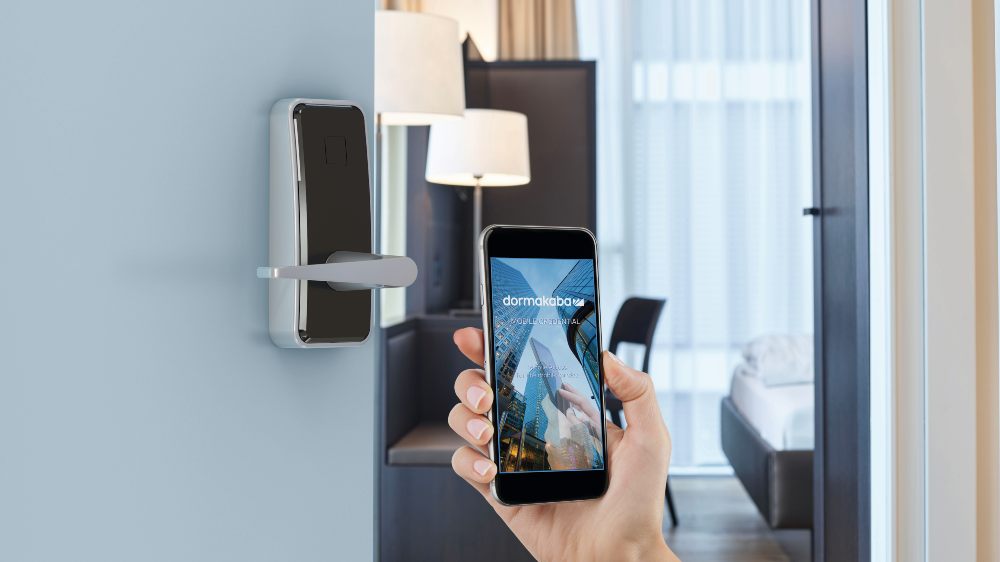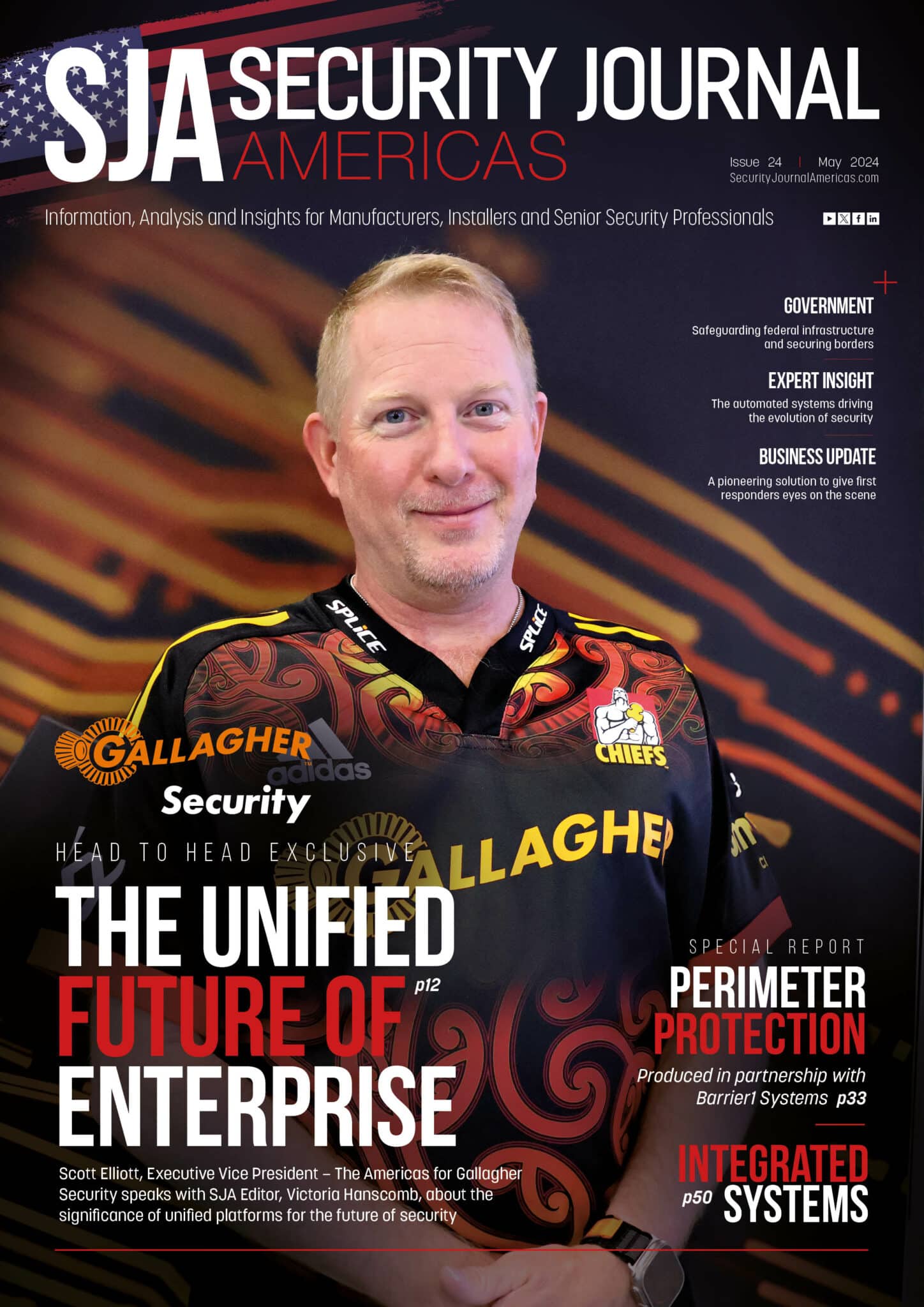EXCLUSIVE: Beyond opening doors – mobile credentials for hotels


Victoria Rees
Share this content
Joey Yanire and Carl Fenger from LEGIC Identsystems explore why hotels are migrating to mobile credentials for secure access.
Article Chapters
ToggleThe hotel experience
The era of metal keys and even keycards in the hospitality industry will soon be a thing of the past. The emergence of virtual hotel keys based on mobile credentials has ushered in a new wave of technological transformation, introducing not only a fresh, convenient way to access accommodations but also a plethora of added benefits that extend far beyond merely opening doors.
The driving factors are simple: it makes the hotel check-in and check-out experience faster and more convenient for guests, while opening new possibilities for complementary service offerings and interaction between customers and hospitality service providers.
Unlike a plastic smartcard, a smartphone-based virtual hotel key provides an interactive platform for hosting service bundles that include room and elevator access, use of in-house spas, parking garage, EV-charging stations, restaurants, casinos and shops. By sharing a guest’s mobile credential with third-parties, service bundles can include opt-in discounts for rental cars, public transportation, museums, theaters, malls, restaurants, amusement parks and other city attractions.
Virtual hotel keys also take personalization to a new level. Mobile credentials can store guest preferences like room temperature, preferred lighting, bedding and toiletry options, minibar contents and favorite television channels. On arrival, guests bypass check-in and go directly to their room. Upon opening the door with the mobile key, the room is already adjusted according to a guest’s wishes, providing a deeply personalized stay.
In effect, a mobile hotel key is a bi-directional service platform where hotel operators can interact directly with guests in real-time to make their stay more convenient, comfortable and interesting. It gives hotels the ability to establish and strengthen their brand and relationship with guests, as well as encourage direct room bookings in the future, instead of through booking agencies who share in a hotel’s profit margin.
Mobile credential security
At the core of these new possibilities is the secure distribution of mobile credentials – digital information that identifies an authorized guest as well as his/her privileges and preferences, which is distributed to mobile devices of hotel guests over-the-air. Mobile credentials give guests permission to access, use, rent or purchase things and services based on a guest’s hotel service package, preferred options, time and location. Offerings can be instantaneously granted or revoked in real-time and over-the-air.
Security is a crucial aspect of any accommodation. Unlike traditional keys or cards that can be easily lost or copied, virtual keys offer much stronger protection. They can’t be lost in a conventional sense because they’re housed in your phone which is locked with PIN or biometric recognition.
They also employ sophisticated encryption algorithms, such as those provided by the LEGIC Mobile Credentialing Platform, making them impossible to intercept or duplicate. In addition, guests can enjoy an extra layer of privacy by digitally designating who may access their room, and when.
On the sustainability front, digital keys have an edge over their physical counterparts. They reduce the need for plastic keycards or metal keys and their associated waste. They also pave the way for a more energy-efficient hotel experience, with the potential to integrate with smart energy management systems. For instance, room lights and heating could be automatically turned off when the guest leaves the room which is detected via their mobile key app.
In conclusion, the digitalization of hotel keys, transcending their traditional function, is reshaping the future of the hospitality industry. As we move forward, we can expect to see more advancements built on the foundation that these virtual keys provide. Their advent heralds a new era of hospitality experience, redefining the term “room key” to mean much more than a device that opens a door; it is a comprehensive tool for personalized, convenient and secure hospitality.
Driving the adoption of mobile keys worldwide
Although the benefits of mobile hotel keys are clear, the underlying system must be absolutely secure as the guest’s security, as well as a hotel’s reputation depend on it. Fortunately, implementing a mobile hotel key system is quick and simple: with over 14 million end-users in over 200 countries and territories, LEGICConnect is a globally deployed mobile credentialing service that supports thousands of mobile hotel keys at many of the world’s largest hotel chains.
Provided as a trusted software as a service (SaaS), LEGIC Connect securely deploys mobile credentials which are received from leading hotel room key management backend systems. Typically, these back-end systems are supplied by hotel door lock or property management system (PMS) vendors to the hotel chains. Credentials are then distributed to authorized Android and iOS smartphones anytime and anywhere in the world prior to arrival.
Other applications where LEGIC Connect is used in this way include large companies (employee badges), universities (student id cards), multi-housing (residential keys) and hundreds of system integrators who leverage mobile credentials to create useful and innovative mobile key-based products and services.
Easy wallet integration
As the trend to consolidate frequently used applications into mobile wallets accelerates, the LEGIC Connect platform also supports wallet-based virtual cards and keys for both Android and iOS-based smartphones via a simple unified API.
This allows mobile virtual keys to be launched without having to unlock the phone, search for and start a mobile key app – simply hold the phone up to the door and it automatically unlocks via near field communications (NFC).
For more details, visit www.legic.com/wallet or email [email protected]
About the authors
Joey Yanire is a seasoned Business Development Manager at LEGIC Identsystems, a global leader in contactless authentication. His career spans decades in various technology fields including IT, software development life cycle, ITIL certifications and training. He has managed geographically dispersed teams in computer operations, consumer electronics and software development.
Carl Fenger has more than 35 years of experience in international marketing, product management, communications and PR working for Swiss, American, European and Asian high-tech companies. He is currently responsible for technical communications at Switzerland-based LEGIC Identsystems.
This article was originally published in the August edition of Security Journal Americas. To read your FREE digital edition, click here.


